What you eat has a profound impact on your health. And when it comes to fighting cancer and reducing your risk of developing cancer, a diet rich in plants is essential.
Indeed, when it comes to anti-cancer foods, a plant-based diet is always top of the list.
And for good reason.
Plant foods are full of thousands of natural chemicals called phytochemicals, also referred to as phytonutrients. These chemicals help protect plants from germs, fungi, bugs, and other threats.
When humans consume these phytonutrients, the chemicals have the same disease-preventing effects in our bodies as they do on plants.
There are thought to be over 25,000 phytonutrients, and science is yet to understand them all and the roles they plan in health.
However, scientists agree that these compounds can help prevent disease by:
- Reducing inflammation in the body
- Slowing the growth of cancer cells
- Preventing cells that have been damaged from multiplying
- Preventing and helping repair damage to the DNA
- Strengthening immunity
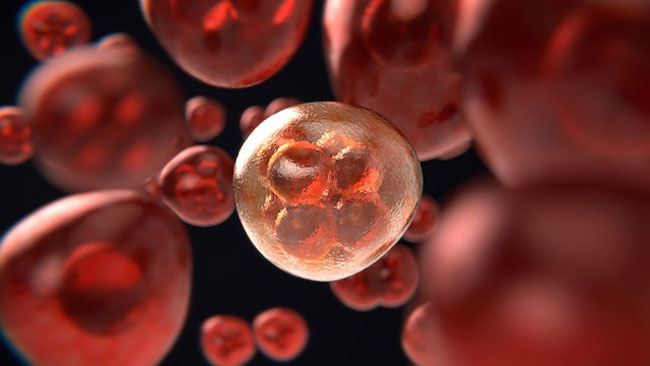
Phytonutrients & Cancer Prevention
Over 4,000 phytochemicals have been identified and researched, and several types of phytochemicals have been categorized by role, as follows:
- Carotenoids: stop cancer from growing, help to improve your immunity, and are good for skin and eyes
- Flavonoids: stop tumors from growing, stop inflammation, and improve immunity
- Indoles and glucosinolates: prevent tumors from growing and stop cancer-related hormones from being produced
- Inositol: stop cells from being damaged
- Isoflavones: restrict the growth of tumors and limit the production of hormones related to cancer
- Polyphenols: stop cancer from forming and prevent inflammation
Phytochemicals are found in whole plant foods, including fruits, vegetables, beans, grains, nuts, and seeds.
The amount and type of phytochemicals differs between plant species and there is no single plant that contains all of them. For this reason it is ideal that humans eat a broad range of plant foods to ensure we maximize our phytonutrient intake.
According to the American Institute for Cancer Research, when individual vitamins, minerals, and phytochemicals are analyzed in the lab, they have been found to have anti-cancer properties, but the strongest protection from cancer arises when these compounds are combined, creating a synergistic effect.
While there’s no specific recommendation on exactly how many phytochemicals you need in your diet, eating a diet full of fruits and vegetables of different colors means you will be getting your fill.
Put it this way, you won't overdoes eating too much broccoli, kale and blueberries.
Plant-based foods are also rich in antioxidants, which help protect cells from damage caused by free radicals. Free radicals are unstable atoms that can damage cells, causing illness and aging.
If too many free radicals accumulate, they can damage DNA and other structures in the cells, increasing the risk of developing diseases like cancer.
15 Anti-Cancer Foods You Should Add to Your Diet
1. Tomatoes
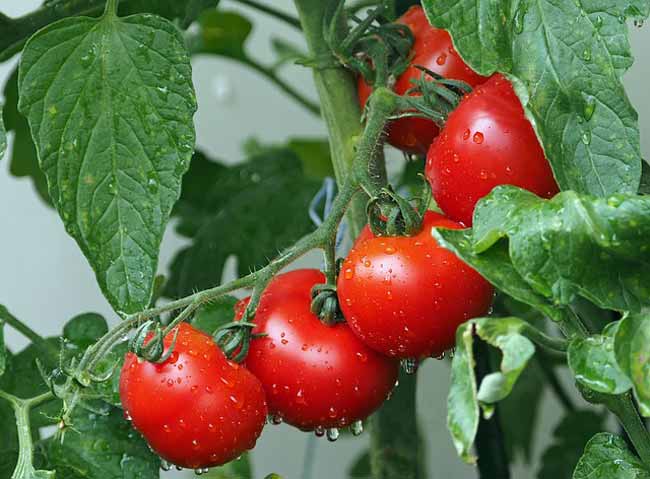
Tomatoes get their bright red color from a compound called lycopene. In addition to making tomatoes look appealing, lycopene has also been linked to a reduced risk of prostate cancer.
A review and analysis of different studies found that the odds of getting prostate cancer were lower in those who had a higher level of cooked tomato intake, suggesting that eating tomatoes can play a role in preventing prostate cancer (1).
One study even found that tomato sauce intake was associated with a reduction in the risk of prostate cancer (2).
One of the reasons for this is that cooked tomatoes in the form of a sauce increase the bioavailability of lycopene.
To get more lycopene in your diet, try adding tomatoes to sandwiches, in a salad, or making a pasta sauce from real tomatoes.
You can also try Tomato soup or gazpacho as a delicious way to make sure you’re getting enough lycopene all year-round.
2. Broccoli

Although broccoli isn’t one of the most popular vegetables, it is super healthy.
As part of the family of cruciferous vegetables, broccoli, along with cabbage, Brussels sprouts, and cauliflower, are wonderful cancer-fighting foods.
Cruciferous vegetables contain glucosinolates – a compound that can detoxify some carcinogens and lower the risk of getting cancer. Not to mention they are packed with vitamins, minerals, antioxidants, and fiber (3).
Eating lots of cruciferous vegetables like broccoli is associated with a lowered risk of developing lung and colorectal cancer. An analysis of over 30 studies found there was evidence that a diet high in cruciferous vegetables was indeed associated with reducing the risk of colon cancer (4, 5).
Broccoli also contains sulforaphane. When applied to breast cancer cells in a test-tube study, sulforaphane reduced the cell population by 65% to 80% (6).
Overcooking broccoli can reduce glucosinolates volume by up to 36%. Instead, steam broccoli and add it as a side to any meal. You can also try eating broccoli raw for maximum benefits. Dip it in a sauce or toss it in a salad.
3. Apples

Apples are one of the most common and affordable fruits. They are also full of polyphenols, which can help with inflammation and infection. One study even suggests they can help fight against breast cancer.
Researchers found that polyphenol phloretin in apples could potentially inhibit the growth and metastasis of tumor cells. This is because the polyphenol phloretin helps to inhibit a protein that is key to cell growth in the advanced stages of some cancers (7).
To support this, another study found the polyphenols from green tea and apples potently inhibit VEGF‐induced VEGFR‐2 signalling and subsequent angiogenesis at concentrations which may be achieved through diet. In layman terms, the polyphenols can stop help inhibit part of the cancer cell growth process (8).
Fortunately, apples are easy to fit into your diet and you probably already eat them regularly. They are an easy on the go snack.
Try dipping raw apples into your favorite nut butter or bake them into a dessert such as a cobbler or crumble. They’re also delicious when sprinkled with cinnamon or blended up into applesauce.
4. Carrots
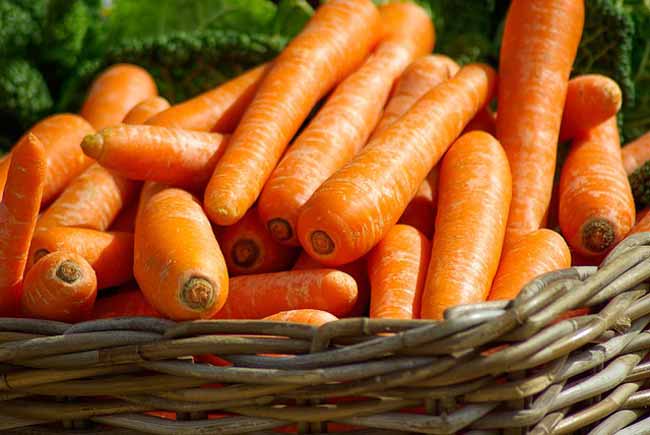
Carrots carry many health benefits due to the compound that gives them their vivid orange color.
Beta-carotene plays a role in preventing cancer and has been linked to a reduced risk of breast and prostate cancer. Beta-carotene was found to help reduce the risk recurring breast cancer. It also helps reduce breast and prostate tumors (9).
Eating lots of carrots can help lower your risk of getting stomach cancer. One study found that consuming carrots provides a risk reduction of up to 26% (10).
Additionally, smokers who ate carrots more often also had a lower risk of developing lung cancer than those who ate them fewer times per week (11).
You can get extra carrots into your diet by simply snacking on them raw. Try dipping them in hummus or peanut butter.
Carrot cake is a deliciously indulgent way to enjoy this vegetable.
You can also steam or roast carrots for a a side dish and season them with some fresh herbs.
5. Mushrooms
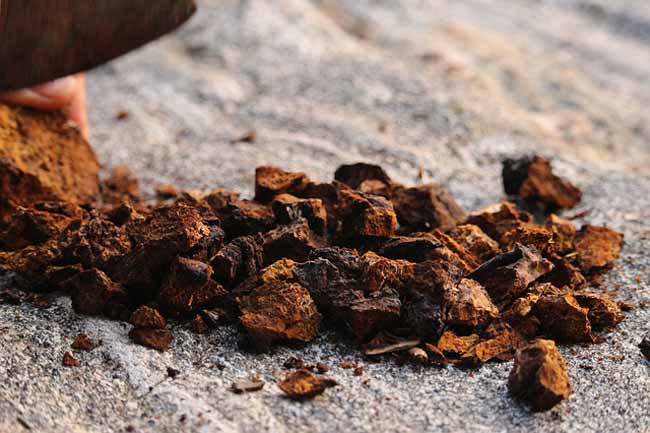
We’re not talking about the common white mushrooms you may know as a pizza topping or ingredient in pasta sauce. We're talking about medicinal mushrooms, which aren’t as widely used but should be a part of your diet – because of their powerful anti-cancer properties.
Chaga mushrooms are a powerful antioxidant that can protect cells against DNA damage and even help kill colon cancer cells.
Reishi mushrooms are widely used in Asia and studies have found that they can help stop the invasion and metastasis of tumors. They have also been used in the fight against breast, ovarian, liver, lung, and prostate cancer (12, 13, 14, 15).
You can find these unique mushrooms in many health food stores or international markets. Add them to soup bases for a rich, earthy broth or mix them into any recipe that calls for mushrooms.
=> See Chaga & Reishi teas & supplements on Amazon <=
6. Onions

A member of the allium family of vegetables, onions are an ingredient used in cuisines all over the world. Consuming vegetables in the allium food group has been shown to reduce the risk of stomach cancer (16).
Eating a large number of onions, garlic, and other vegetables showed a decreased risk of colorectal adenoma, which is a precursor of colon cancer (17).
If you’ve been shying away from onions because they they have too much of a bite, try cooking or frying to temper the edge. Dice them finely to add to salsa or guacamole, or eat sweet onions instead of the more fragrant red ones.
7. Beans
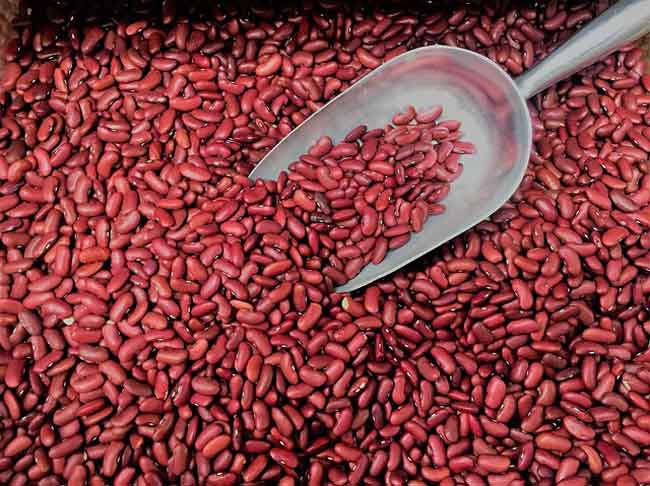
A great source of plant-based protein, beans are also high in fiber – which is thought to be why they can help fight against colorectal cancer. Patients with a history of this disease found that eating more beans lead to a reduced recurrence of tumors (18).
Getting more fiber by eating beans was also linked to reduced rates of breast cancer. Other animal studies found that the consumption of beans blocked cancer cells from developing (19, 20).
Add beans to a burrito, soup, or salad. Baked beans are a common side dish that can be enjoyed at any time of the year, and rice and beans are a staple for many people that is easy to prepare and delicious with herbs and a spicy sauce.
8. Berries

While they may be small, berries manage to pack a lot of cancer-fighting properties into a tiny piece of fruit.
Studies have found that treating cancer cells with various berries could reduce cell growth (21, 22).
Berries also decrease the amount of certain markers that are linked to cancer progression, and can the number of tumors. One study on strawberries found that the larger the dose, the more the cancer was affected (23, 24).
Organic strawberries were the most effective, but conventional still had a positive effect. Toss frozen berries into a smoothie or top your favorite granola or breakfast cereal for some added cancer protection.
9. Citrus Fruits

Lemons, limes, oranges, and grapefruit seem to benefit patients with digestive, respiratory, stomach, and pancreatic cancer, and research shows that consuming a large amount of these juicy fruits can lower your risk of developing cancer (25, 26).
One meta-analysis found that an intake of three servings a week resulted in a reduced risk of stomach cancer by up to 28%. Try adding a grapefruit to your breakfast plate, and a couple of satsumas as an afternoon snack (27).
10. Flaxseed

High in both fat and fiber, flaxseed has been linked to a decrease in cancer cell growth.
A study of women with breast cancer found that adding flaxseed to their diet for one month resulted in more cancer cell death, leading researchers to conclude that it may be able to reduce tumor growth (28).
It also has similar effects on prostate cancer cells which, when treated with flaxseed, had reduced growth. The high fiber content of flaxseed has, like beans, been linked to protection against colon cancer (29).
Incorporate flax by eating muffins like the women in the breast cancer study, or add it to a smoothie, sprinkle it on top of cereal, or use it in baking.
11. Cinnamon
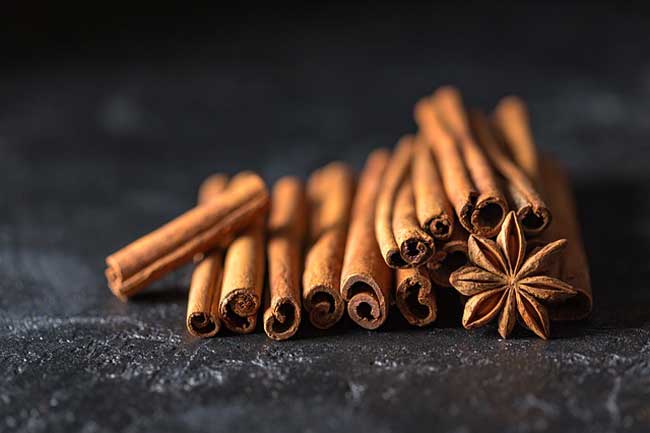
In addition to being able to reduce blood sugar and inflammation, cinnamon may be able to help stop cancer cells from spreading. One study found that applying cinnamon extract to cancer cells lowered how much they spread and helped kill them off (30).
Another study using essential oil was linked to reducing the size of tumors and slowing the growth of head and neck cancer cells. Just a teaspoon of cinnamon each day may help to prevent cancer (31).
You can easily incorporate cinnamon into your diet by mixing it in with fruit or dairy-free yogurt, adding it to a smoothie, and using it when baking.
12. Nuts
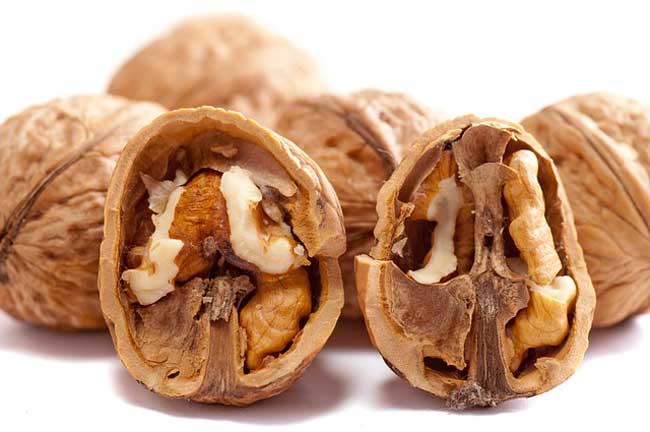
Many types of nuts are cited as anti-cancer-foods, including colorectal, pancreatic, and endometrial cancer.
Brazil nuts, known for their high selenium content, may be effective in preventing lung cancer in some people (32, 33).
However, walnuts, in particular are quite powerful compared to other nuts.
An animal study involving walnuts found that prostate tumor growth was significantly slowed.
A similar study on breast cancer found that walnut consumption reduced the number of tumors and slowed the growth of colon and renal cancers (34, 35).
So grab a handful of nuts to snack on or eat them in trail mix, in a granola bar, or on top of oatmeal. Substitute walnuts for meat to make a vegetable loaf with fiber-rich lentils for added cancer protection.
13. Turmeric
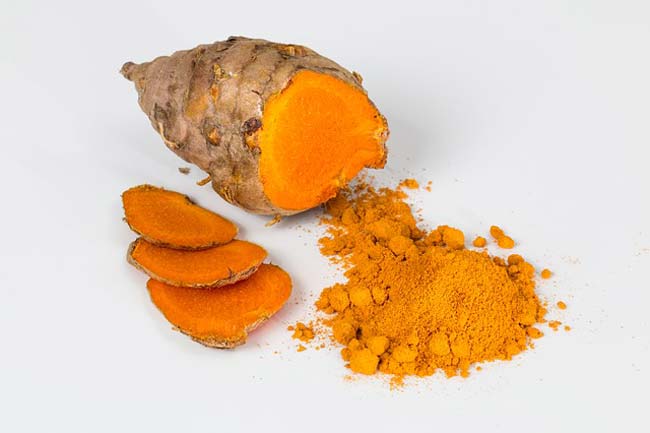
Curcumin is the main active ingredient in turmeric. This anti-cancer food has a distinct orange color has many health benefits, including acting as an anti-inflammatory and antioxidant.
Turmeric has seen good results in test-tube studies where it has been effective at slowing cancer cell growth in several types of cancer (36, 37, 38).
Patients with lesions that had the potential to turn into cancer experienced a reduction in lesions after consuming several grams of curcumin each day.
A clinical trial found that consuming curcumin helped stop cancer from developing in precancerous patients (39, 40).
Dried and powdered turmeric can be used in cooking or baking and has been a staple of Indian cuisine for decades. Turmeric can also be juiced along with other fruits to enhance flavor or added as a boost to smoothies.
14. Garlic
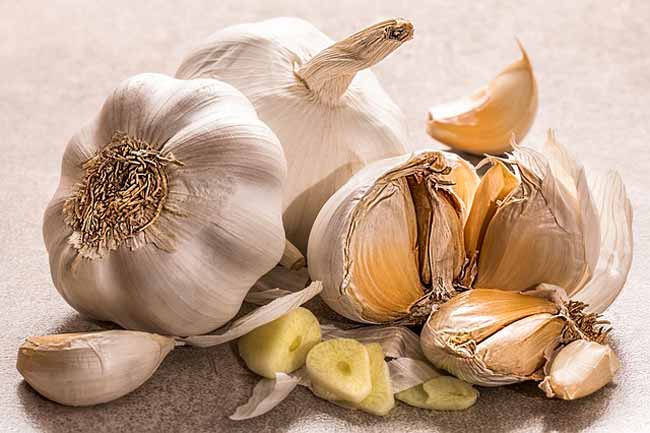
Garlic contains several compounds that are effective in the fight against cancer, including glutathione. It is effective at suppressing the growth of cancer cells and causing cell death (41).
The antimicrobial properties of garlic mean it can help fight against the bacteria linked with gastric cancer. As an antioxidant, it helps prevent DNA damage and mutation that could lead to cancer development (42, 43).
Cook garlic and add it to a side of vegetables, mix it into a casserole or mashed potatoes.
It’s perfect for adding to a marinade and garlic oil can be used for infusing flavor into a variety of dishes. Garlic powder is a convenient way to get the benefits of garlic if don't have the time to prepare it raw.
15. Soursop
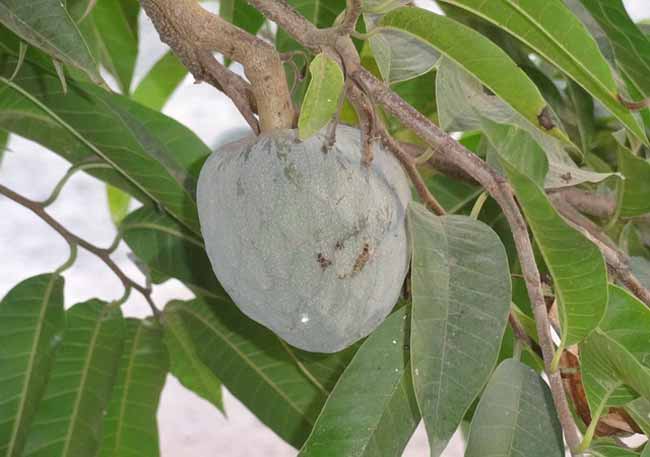
Soursop is a tropical fruit that many in North America may be unfamiliar with. It has a sweet yet tangy flavor and can be juiced, added to smoothies, or used in making desserts.
Scientists have found that soursop contains acetogenins which have chemotherapeutic properties.
Additionally, compounds from the seeds of this fruit were found to be highly toxic to cancer cells and more potent than a chemotherapy drug that is known for dangerous side effects (44).
If you’re looking for this fruit, try browsing at an international or Asian market. If you're traveling in South or Central America you’ll be sure to find it sold on streets and in restaurants.
—-
Add these 15 anti-cancer foods to your shopping list and help combat the effects of carcinogens that promote cancer in your body.
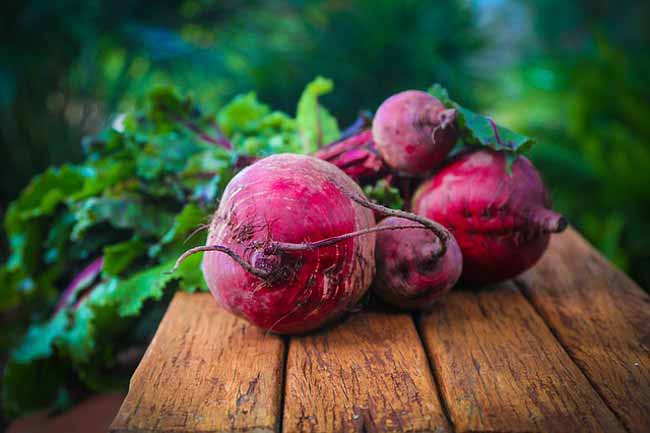
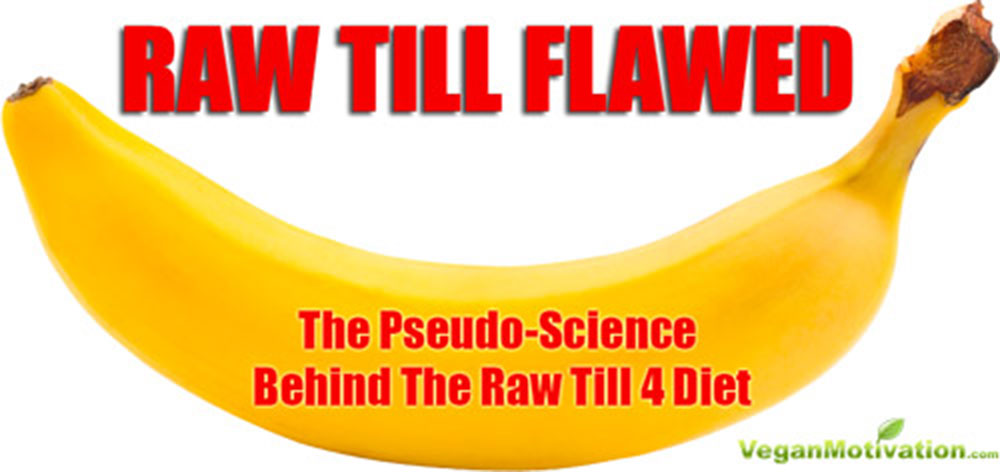


Leave a Reply